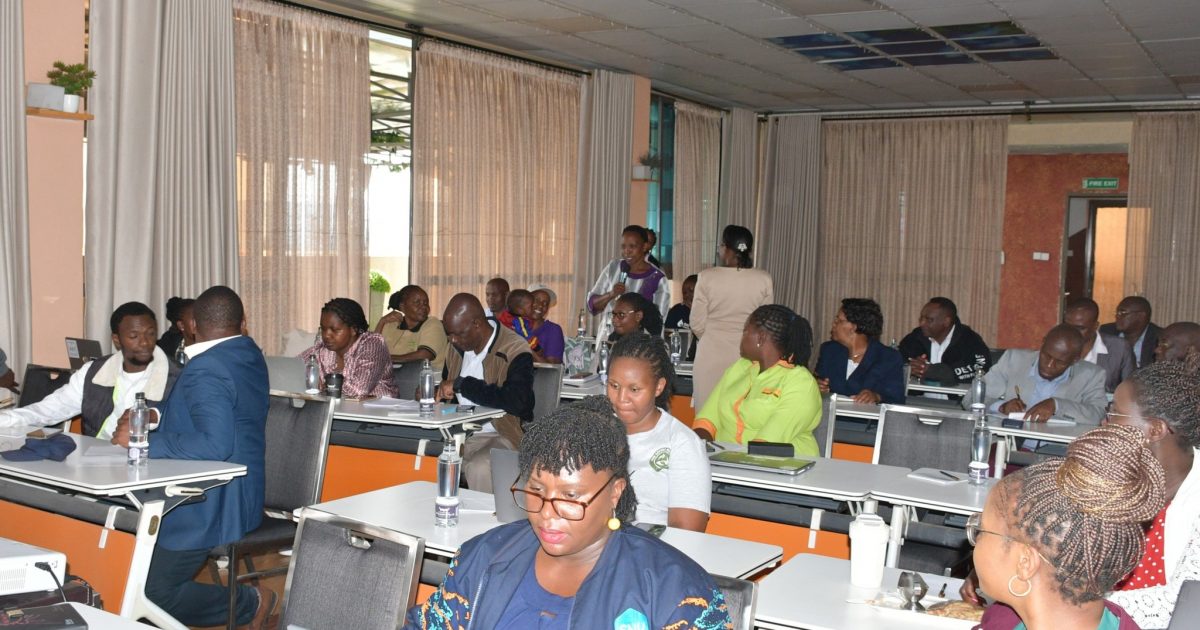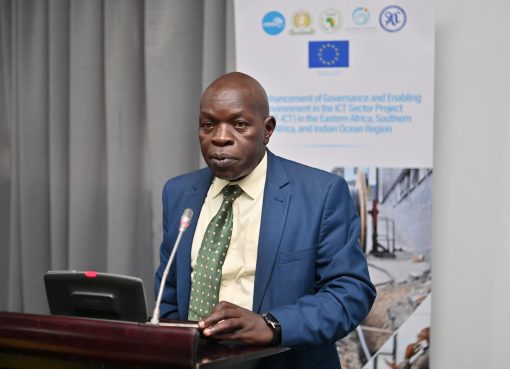The County Government of Nakuru is supporting regenerative agriculture with clean energy solutions that involves integrating renewable energy technologies like solar, wind, and geothermal into farming practices to reduce reliance on fossil fuels and promote sustainable, environmentally friendly farming.
According to the County Executive Committee Member (CECM) for Water, Environment, Climate Change, Energy, and Natural Resources, Dr Nelson Maara, with a rapidly growing population, expected to hit 96 million by 2050, there is an urgent need for Kenya to sustainably produce sufficient, nutritious food for all while addressing climate change impacts from agricultural practices.
Dr Maara noted that since agriculture emits 20 percent of Green Houses Gases (GHGs), adopting long term, climate sensitive farming was imperative.
The CECM pointed out that sun, wind and heat within the earth (geothermal) unlike fossil fuels do not pollute the atmosphere.
He noted that various studies have shown using these renewable resources in irrigation, harvesting, processing, storage and transportation of food promotes sustainable farming.
He made the remarks during a follow up session convened by the County Government, in collaboration with the Netherlands Development Corporation (SNV) and the IKEA Foundation, to refine opportunities in Regenerative Agriculture (RA) and the Productive Use of Renewable Energy (PURE) within the county.
Dr Maara reaffirmed Governor Susan Kihika’s administration commitment to supporting the implementation of regenerative agriculture through clean energy solutions.
He emphasized that integrating clean and renewable energy into agricultural practices would lead to cost reductions in production, increased yields, and improved food security for residents.
The session brought together a broader group of stakeholders, including officials from the Directorates of Agriculture, Crops, Environment, Water, and representatives from SNV, to explore ways to optimize the initiative’s impact.
“This engagement with our partners builds upon the ongoing “Seas of Change” initiative, which seeks to establish a renewable energy-driven, resilient food system that promotes sustainable farming practices, increases farmers’ incomes, and enhances livelihoods,” stated Dr Maara.
He said through a public-private partnership, the devolved unit’s administration is providing incentives and technical support to farmers in an initiative aimed at scaling up the uptake of renewable energy in both agricultural and fisheries sectors to help enhance food security.
The County Government the CECM pointed out was driving a clean energy revolution aimed at enhancing climate change adaptation and strengthening food security by reinforcing homegrown agriculture through improved irrigation, cold storage, and deploying fuel-efficient technologies across food systems.
Dr. Maara said the County government, through the partnerships, was promoting the adoption of equipment that reduces post-harvest losses and preserves food quality through indirect geothermal heating, green energy-powered cooling technologies, solar dryers, and milling and oil processing equipment.
The CECM added the County was collaborating with the Geothermal Development Company (GDC) to supply farmers with geothermal steam for agricultural-related processes, including drying tea and cereals, powering dairy pasteurization, heating greenhouses, and in fish farming.
He explained that solar-powered irrigation had the potential to drip-irrigate crops in both small and large farms that could help reduce resources used in agricultural production for the farmers.
While noting that more than 40 percent of food perishes before it reaches the consumer, Dr. Maara elaborated that solar-powered cold storage rooms could provide an effective and inclusive solution in off-grid areas through shared ownership, lease, or “pay-per-use” business models.
He gave an example of a typical farm in Kenya, where the cost of irrigating one acre for five years using a solar pump was estimated at Sh330, 000 as compared to Sh660, 000 when using an equivalent diesel pump.
“This partnership will be key in addressing the challenges of energy access, improving productivity, and creating jobs,” assured Dr. Maara.
The County official further said that renewable energy could play a critical role in meeting the needs for electricity, heating, cooling, and transport of food systems in Kenya.
Renewable energy, the CECM added, could help advance efforts to end hunger, lower greenhouse gas emissions, increase the adaptive capacity of farmers and Agri-enterprises, raise incomes, and lessen the environmental impact in the food sector.
Dr. Maara, however, pointed out that scaling up renewable energy use in agri-food systems to advance food security will require concerted action by decision-makers in government, the private sector, international organizations, financing institutions, academia, and nongovernmental organizations.
While citing the potential in geothermal energy, Dr. Maara said if efficiently harnessed, the geothermal heat could deliver energy that will enable farmers and food processors to increase quality food production and help improve food security.
With regard to fish rearing, Dr. Maara said aquatic ponds are heated and maintained at 29 degrees centigrade for optimal fish metabolism, leading to faster growth, adding that maintaining aquatic ponds at a constant temperature of 29 degrees’ centigrade would decrease the maturity period of fish from six to four months for Tilapia, where profitability is increased by more than 40 percent.
He said farmers were being encouraged to use solar panels (also called photovoltaic or PV panels) to generate electricity from sunlight, adding that the electricity could be used to power a water pump, normally used for village water supply, livestock watering, and small-scale crop irrigation.
Head of Leverage and Pathway at SNV, Mr. Geoffrey Rono, commended Nakuru County for its proactive approach and continued engagement in sustainable agricultural projects.
Mr. Rono highlighted the success of the previous Regenerative Agriculture Practice for Improved Livelihood and Markets (REALMS) project (2020-2024) and expressed confidence that the “Seas of Change” initiative would build upon these achievements.
The session also provided an opportunity for technical experts and stakeholders to deliberate on best practices, potential policy support, and areas requiring further investment. Key discussions focused on financing mechanisms for smallholder farmers, capacity-building programs, and infrastructure development for renewable energy solutions in farming.
The United Nations Environment Programme (UNEP) states that the global food production system produces a third of the world’s greenhouse gas emissions, and over 70 percent of these come from livestock and fisheries, crop production, and land use.
The rest comes from food processing supply chains related to packaging, transport, and retail.
Cooperatives Chief Officer Mr. Kibet Kurgat reiterated that as Nakuru gears up for the official rollout of the “Seas of Change” initiative in 2025, the County Government and its partners remain committed to ensuring that local farmers fully benefit from regenerative agriculture and renewable energy solutions.
Mr. Kurgat indicated that future engagements will focus on practical implementation strategies, resource mobilization and scaling up successful models to maximize the program’s impact across the county.
By Anne Mwale





